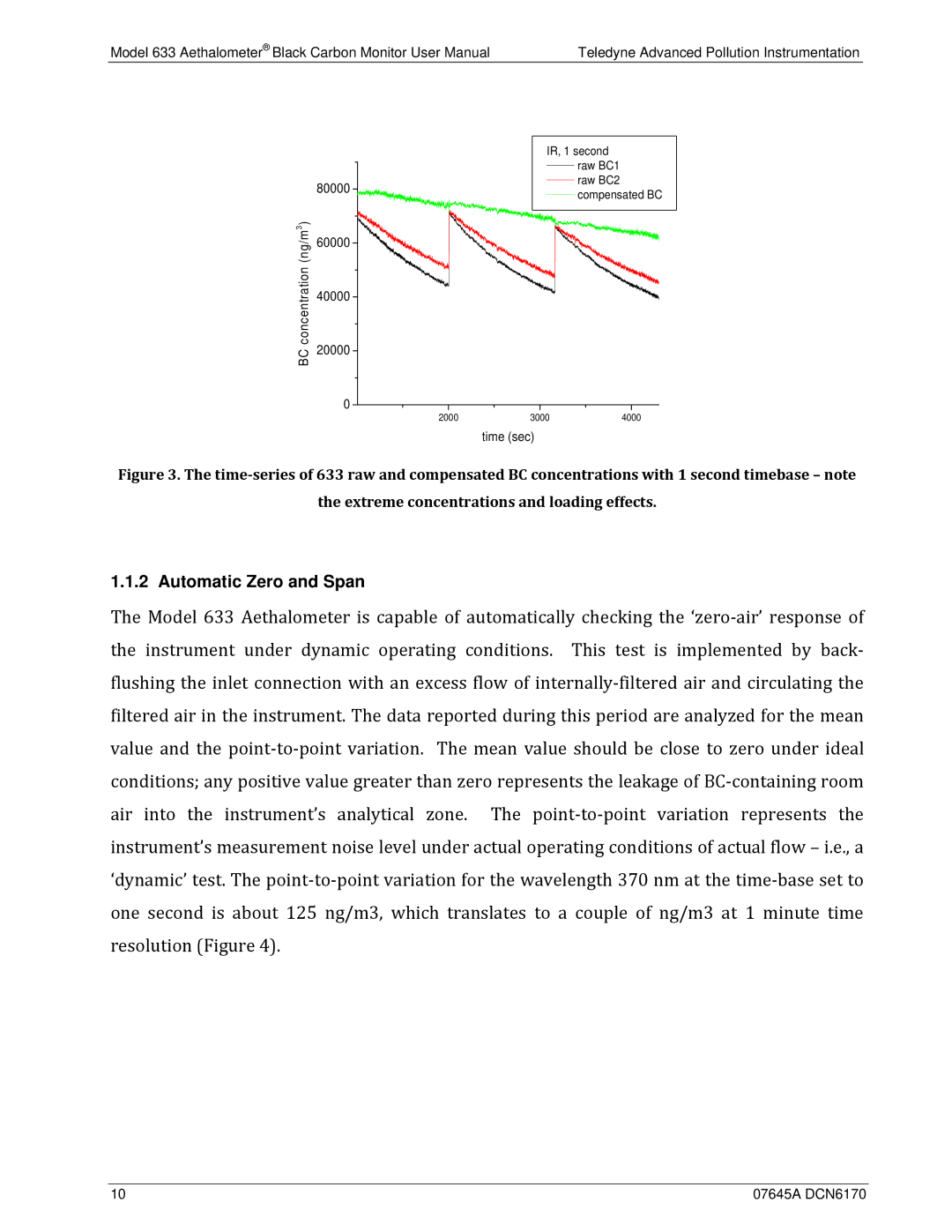
Model 633 Aethalometer® Black Carbon Monitor User Manual | Teledyne Advanced Pollution Instrumentation |
|
| IR, 1 second | |
|
|
| raw BC1 |
| 80000 |
| raw BC2 |
|
| compensated BC | |
|
|
| |
) |
|
|
|
3 |
|
|
|
(ng/m | 60000 |
|
|
|
|
| |
concentration | 40000 |
|
|
20000 |
|
| |
BC |
|
| |
|
|
| |
| 0 |
|
|
| 2000 | 3000 | 4000 |
time (sec)
Figure 3. The timeseries of 633 raw and compensated BC concentrations with 1 second timebase – note
the extreme concentrations and loading effects.
1.1.2 Automatic Zero and Span
The Model 633 Aethalometer is capable of automatically checking the ‘zero‐air’ response of the instrument under dynamic operating conditions. This test is implemented by back‐ flushing the inlet connection with an excess flow of internally‐filtered air and circulating the filtered air in the instrument. The data reported during this period are analyzed for the mean value and the point‐to‐point variation. The mean value should be close to zero under ideal conditions; any positive value greater than zero represents the leakage of BC‐containing room air into the instrument’s analytical zone. The point‐to‐point variation represents the instrument’s measurement noise level under actual operating conditions of actual flow – i.e., a ‘dynamic’ test. The point‐to‐point variation for the wavelength 370 nm at the time‐base set to one second is about 125 ng/m3, which translates to a couple of ng/m3 at 1 minute time resolution (Figure 4).
10 | 07645A DCN6170 |
